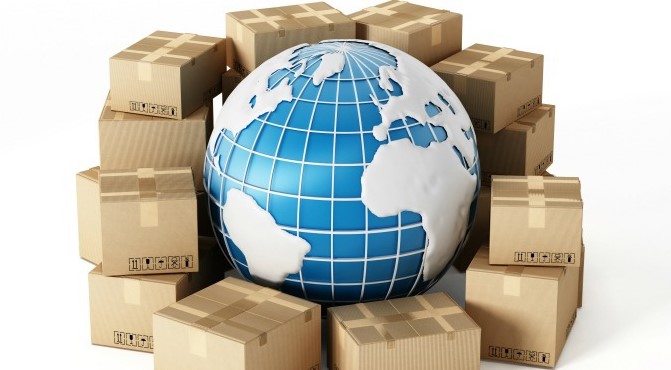
An international logistics business plays an integral part in international trade. This kind of business is literally responsible for planning, executing, and controlling physical and information products and services moving from one place to another internationally. The business is supply chain rarely crosses any international border, at least at a minimum. Most often, it consists of physical movement between suppliers and manufacturers via trucking companies, carriers, or air cargo handlers.
In order to facilitate international logistics, international freight forwarders play a key role as shippers. They organize for transportation of cargo between the source and the destination, using a combination of transportation and warehousing strategies. They also act as agents that move the cargo legally between countries, as required by local, provincial, state, or international regulations. And they arrange the shipment of hazardous materials, as well as goods that need to undergo security screening before leaving the country that they are headed for and check packers and movers in hyderabad.
A foreign national can become a shipper just by taking a shipping certification course, provided by a university or a technical college. The certification courses usually cover subjects such as customs law and shipping regulations. But the most important aspect of the course is learning about international logistics. After taking the class, the student will be prepared to successfully complete a one-way shipment or pick-up. Depending on the service provider, the individual may be required to stay in contact with the customs and other relevant authorities regarding the transportation of the goods.
There are numerous international logistics challenges that individual exporters and importers have to face. One of these is the issue of establishing a viable back-up supply chain. Supply chains enable businesses to meet the demand of raw materials and finished goods at the lowest possible costs. For example, if a manufacturing company needs raw materials from one country, but it also desires to make supplies of finished goods from another country, it has to establish a logistical relationship between the two locations. Establishing a supply-chain framework requires a lot of consideration and foresight.
There are many ways by which an international logistics provider can help to establish a sustainable supply chain. A logistics expert can suggest the establishment of a unified supply network by creating one international border. This border can be used to exchange raw materials and finished goods between regions. Another way to use international logistics is to maintain a single shipping channel between two locations, although there are instances when a single international border is insufficient for some goods. Finally, an international logistics provider can also help to manage the movement of goods from one international border to the other by establishing linkages between freight forwarders and freight logistics providers.
There are many legal considerations involved in the transportation of goods internationally. An international movers san Francisco can ensure smooth customs brokering by ensuring that all legal procedures are in place and that the relevant documentation is available. The role of the logistics expert is more significant when goods need to be moved across borders in a hurry. For instance, an international cargo transport service may have to ensure that the appropriate documentation is on board and that the appropriate charges have been paid. If the documentation is not available or if the charges have been paid, there may be problems with customs clearance and delivery.
The physical location of the provider is critical to the success of any international logistics provider. It is important to choose a location that provides the best access to the necessary raw materials, such as fuel and construction materials. It is also important to choose a location that is easy to get to and that has a consistent transportation infrastructure. It is also important to choose a location that has a good reputation for efficient handling of goods, good customer service and a willingness to work with innovative solutions to meet the customer’s needs. In the case of international cargo transport, an important issue is the protection of intellectual property and the safety of the physical cargo.
Some of the major issues associated with the supply chain include the location, size, and number of cross docking stations. Cross docking stations refer to trucks that can cross international borders to bring raw materials to one country, while refueling operations take place in another country and the raw materials are then shipped to the final destination in another country. While one country’s regulations can often conflict with those of another country, it is usually possible to find common ground. Consultations between companies involved in international logistics management can help to find solutions to these and other potential problems.


